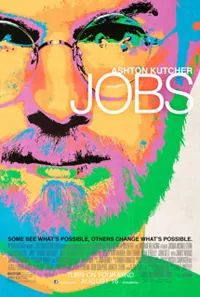‘Jobs’ Review: An Incomplete Tale
The film begins at the start of Apple’s most recent path to innovation. An older Steve Jobs, creator and founder of Apple Computers, introduces to his staff a new piece of equipment that allows the consumer to hold 1,000 songs in their pocket: the iPod. As the audience chuckles together about how much the iPod revolutionized handheld devices, the film JOBS goes back in time. We see Steve as a young man at Reed University, where he has dropped out but continued to attend classes. In the first few moments of the film, we learn that Steve has little interest in actual engineering, little respect for authority figures, and very little respect for relational commitments. This last theme holds strongly throughout the movie as the audience is subjected to many scenes that show Steve being harsh or manipulative to gain his end goals: fame and power.
That being said, Ashton Kutcher shines in this dramatic role as Steve Jobs. Although the directing falls short and the writing is at most sub-par, Kutcher and cast-members Dermot Mulroney (playing Mike Markkula) and Josh Gad (Steve Wozniak) are fantastic! Kutcher manages to capture both sides of Steve Jobs, even when the film does not. He is both brilliant and distracted, both confidant and cowardly. Each silent moment Kutcher had onscreen, the audience was allowed to glimpse into the difficulties and insecurities that Steve faced every time he looked in a mirror. Gad’s performance showed an accurate mix of child-like wonder and gifted engineering that I see in the engineers I know. In all, the cast did a great job with what they were given, which wasn’t much.
In Steve Jobs’ infamous commercial, he says, “Here’s to the crazy ones, the misfits, the rebels, the troublemakers, the round pegs in the square holes…” But the film itself doesn’t show Jobs as a brilliant misfit whom society did not understand. Instead, he is a relentless bully whom the world idolizes for his ability to bring together designers and engineers to create magnificent products. Whether the film intended to show the steps of inspiration that Steve found in his life and the difficulties he faced – both personal and external, or if it intended to be an Machiavellian tale of how brilliance and innovation can so easily be tied to a ruthless desire for power, it did not tell a complete story of either Steve Jobs: the man or Steve Jobs: the mastermind. It told a story of Steve Jobs: the crazed bully.
Personally, I would have written an allegory about the Apple products and their relation to life that Steve Jobs led. When Apple was starting out, Jobs had a brilliant vision. When Macintosh was falling apart, Steve’s life was similarly crumbling. And when the iPod transformed the world, Steve Jobs became a household name and a legend. After all, the product is but an extension of the user, right Steve?
Grade: C+
Review By: Alexandra Pauley



This film is on my must-see list. Thanks for the review.
Thanks for the review, looking more forward to seeing it now, sure to be interesting.